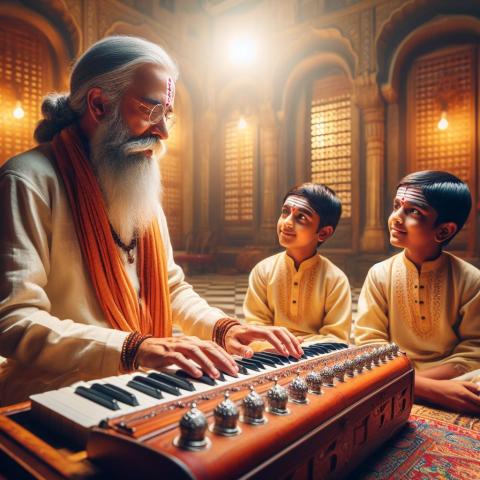Vocal Music or 'Gaayan' (Singing) in Indian Classical Music is considered most important among three main areas. Other two Vaadan(Playing an Instrument) and Nritya (Dancing). I have laid out some vital aspects of Vocal Music training in this article.
- Voice Culture
- Collection
- Performance
- Creativity
- Theory
- Aesthetics
Voice Culture includes but not limited to: Voice Texture, Pitch Range, Breath Control, Voice Throw, Taiyaari (ability to sing different nuances of music), Embellishments.
Importance:This is genre specific. A great amount of training time is spent to develop or craft a Voice texture or culture required for the particular genre. A seasoned folk singer will sound like folk singer no matter what he sings. So first thing first...you must train the voice keeping the genre in mind
Collection means: Ragas,‘Bandish’ or Compositions, Song Bank , Knowledge of Time cycles or Taal and Rhythms
importance: Richer your repertoire make you better musician in many aspects. This does not need any explanation. Experience teaches us your perception improves significantly if you keep enriching your knowledge bank or Should I say..Music Bank
Performance may cover: Confidence, Choice, Understanding Audience, Balance, Clarity and Organization, Entertainment Factors, Abinaya(Acting), ‘Mudra Dosh’(gesture or posture defects)
Importance: Most evident aspect of any performing arts in performance itself. Every artist needs to understand his audience to be successful in his endeavors. This may need good analytical mind, observation, confidence. Most importantly an attitude to entertain them and enrich their lives.
Creativity: Imagination, Improvisation, Elaboration, Compositional Skills etc.
Importance: What is an artist without creativity? After improving your basic musical skills you also need to nurture your creative side. Every form of Art will be limited to mere repetition if something new and fresh is not improvised time to time. This is very important even during performance. You always need to be ready to improvise or elaborate if situation demands.
Theory include but not limited to: Terminology of Music, Notation, Documentation, History of Music and Musician, Principles of Music
Importance: If you understand principles behind whatever you do then there is a greater chance that you will do it more effectively. Innovation always come after you understand fundamentals of anything. Thanks to music scholars and legends from past who imbibed us great resource.
Aesthetics: Art Appreciation, Observation, Listening Habits, Grasp or Comprehension
Importance: We are into music..and reading article because we appreciate music. isn’t it? More you listen more you are inspired. Whenever I attend a concert of my choice I come home charged up to pick my Tanpura and start singing. We learn so much from watching others.
Conclusion:
Students and Teachers must focus on all of these areas as a holistic approach to shape and completeness of music learning.

